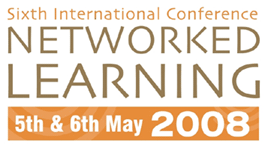

Evolving a Vision for Technology-Enhanced Learning (TEL)
Keynote: Professor Diana Laurillard
London Knowledge Lab, Institute of Education, London, d.laurillard@ioe.ac.uk
Abstract
Researchers do not normally trouble themselves with 'vision statements'.
A vision for a field of research is more likely to be an evanescent and
emergent property of its intellectual clashes, than something that can
be represented as a joint communiqué. There was some debate within
the Kaleidoscope Network over the wisdom of developing an agreed statement
on where we believe TEL research is heading. There is too wide a range
of ambitions, too many uncertainties about the intellectual foundations
of the field, too little agreement about the most fruitful pathways to
pursue.
Against that reluctance stood the sense that, nonetheless, there is something
shared by the researchers in this field. Technology enhanced learning
is expanding throughout the developed economies, and global education
will extend this to the developing economies as well. Researchers believe
that innovation in a system will be more effective if it is informed by
a scientific approach to understanding that system. If educational leaders
and policy-makers are to envisage a future role for technology in education,
then the research community should have something coherent to offer that
helps to shape that vision.
The Kaleidoscope Network therefore embarked on the difficult process of
agreeing a vision for TEL research. It was a highly collaborative and
iterative process, conducted through face-to-face meetings, an online
collaborative document development environment, and through a day-long
Symposium with different groups of stakeholders, from: school educators,
higher education, lifelong learning, and industry. The resulting publication
is now in its second edition and is our first expression of the ambitions
of the research and the issues it raises.
For researchers, sharing a common understanding of similarities and differences
is an ongoing process. Kaleidoscope researchers reached the point where
the vision statement was likely to be stable at a general level but with
the expectation that it would evolve further. The second edition, for
example, embraced also the foresight activities of the ProLearn Network
of Excellence (in Technology Enhanced Professional Learning). Although
the statement aims for stability in its broad outlines, it will evolve
to further versions by elaborating the detail that contributes to the
realization of the broader vision.
The presentation will summarise the emerging research issues relevant
to Networked Learning, illustrated with findings from some of the Kaleidoscope
projects, in terms of:
Designing tools for learners
e.g. pedagogic and collaborative support for developing high level cognitive
skills such as analysing, generalising, modelling
Designing tools for teachers
e.g. enabling teachers to orchestrate the discussion and collaboration
scripts of their learners, at different levels of granularity
Technology enhanced learning design principles
e.g. designing adaptive systems that can take account of the social and
cultural embedding of learners
Conceptualisations
e.g. the affordances of digital technologies for a wider range of educational
possibilities in epistemology and equity.
The presentation will draw on some of the ideas developed at NLC 2006,
particularly Goodyear's analysis of conceptions of learning through discussion,
as one of the analytical tools for understanding the role of Networked
Learning within a vision for technology enhanced learning as a whole.
| About NLC |
2008 Conference Papers
| Conference Committee| Keynote
Speakers
| Papers from previous NL conferences |Research Seminars| Current Conference
| Sponsors | Contact
|
